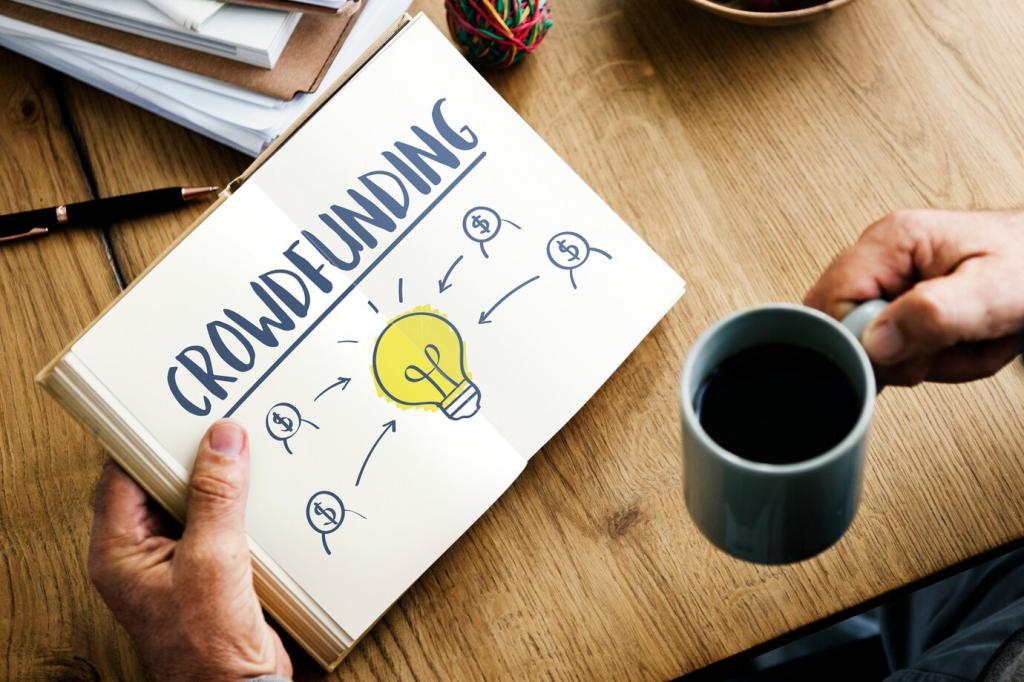
Calm Builds Companies: The Impact of Stress Management on Entrepreneurial Success
Chosen theme: The Impact of Stress Management on Entrepreneurial Success. Learn how mastering stress sharpens decisions, strengthens teams, and sustains growth. Dive into practical rituals, founder stories, and evidence-informed habits. Share your approach and subscribe for weekly resilience insights tailored to entrepreneurs.

Founders’ Daily Rituals That Actually Work
Begin with five quiet minutes: breathing, a brief intention, and top three priorities. Add light movement and sunlight if possible. This quick sequence steadies your nervous system and aligns execution with strategy. Try it tomorrow and comment with your adjustments.

Decisions, Risk, and the Calm Brain
The Strategic Pause Before Committing
Use a ninety-second pause before high-stakes replies. Breathe slowly, name the emotion, then revisit the objective criteria. This tiny buffer reduces impulsive yeses, protects runway, and preserves relationships. Try it in your next tense email and report what changed.
Pre-Mortems to Defuse Anxiety
Imagine a launch failing, list reasons, then design safeguards. Turning fear into concrete risks lowers anxiety and clarifies action. Teams feel safer challenging assumptions, and plans become sturdier. Share your best pre-mortem question to help other founders probe blind spots.
Red-Teaming Without Burnout
Schedule brief, time-boxed critique sessions with clear roles and psychological safety norms. When stress is contained, dissent feels constructive, not personal. Decisions benefit from sharper thinking without exhausting the team. Tell us how you keep feedback tough yet humane.
Openly admit uncertainty, ask for input first, and thank dissent. These micro-signals invite honesty, reduce defensive behavior, and keep stress from spreading. Leaders who model curiosity under pressure build resilient teams. Share one phrase you use to lower tension fast.
Team Culture: Preventing Stress Contagion
Avoiding Burnout and Rebuilding After the Dip
01
The Personal Dashboard
Track simple signals weekly: sleep quality, irritability, focus drift, and joy in the work. Trends matter more than single days. When two indicators slide, adjust workload. What metrics or questions help you notice burnout before it bites?
02
Recovery That Restores, Not Escapes
Active rest—walks, hobbies, light social time—replenishes energy better than endless scrolling. Pair recovery with sunlight and gentle movement. Write a brief plan for your next recovery weekend and share it to encourage accountability in our community.
03
Bounce-Back Protocol After Overload
When you’ve overreached, run a short post-mortem, trim commitments, and re-sequence projects. Celebrate the reset as wisdom, not failure. Tell us how you’ve redesigned your workload after a tough stretch so others can learn practical, humane approaches.
Tools, Metrics, and Low-Friction Experiments
A Simple Stress Scorecard
Rate sleep, focus, mood, and physical tension daily from one to five. Review each Friday, then decide one adjustment for the next week. Small tweaks accumulate. Share your template and we’ll feature community variations in upcoming posts.

Real Stories from the Build
Maya’s Pivot Without Panic
When early users stalled, Maya paused for five deep breaths, called three customers, and heard the same friction. A small pricing tweak and clearer onboarding doubled activation. She credits the pause for preventing a hasty rebuild. What small pause saved you?
Jorge’s Agency and the Daily Standdown
Jorge instituted a fifteen-minute end-of-day check: celebrate wins, capture blockers, assign tomorrow’s first tasks. Team anxiety dropped, client delivery stabilized, and weekends felt real again. Try a mini-standdown this week and tell us one unexpected benefit you noticed.
A Candid Miss, Then Momentum
A founder approved a rushed feature under pressure; it broke key workflows. Afterward, the team adopted pre-mortems and a ninety-minute decision window for risky changes. Churn fell, morale rose. Share your toughest stress-driven mistake—and the policy that now prevents repeats.
